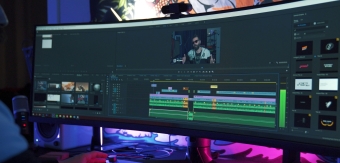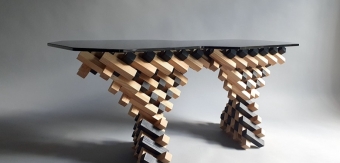by Magnus Shaw

An enormous advertising company (Leo Burnett) and a small creative film company (Asylum) have had a difficult couple of weeks. It's a tangled tale but essentially Asylum produced a film for the McDonald's charitable foundation for Leo Burnett. Barely covering their costs, they charged £5k presumably in the hope the larger company would be so impressed, it would commission further projects with bigger budgets. So far, so unexceptional. However, Leo Burnett then took the film to another provider and had it re-made, shot-for-shot.
What's more, they didn't consult Asylum about this decision or even inform them. Pleas for an explanation fell on deaf ears, so Asylum's Ben Falk released an open letter to the industry, criticising LB's actions. Unsurprisingly, this caught LB's attention and their CEO Paul Lawson is now engaged in some serious back peddling and apologising. Perhaps sensibly, Falk has said he won't be taking legal action.
Right now, this story is quite a big deal in adland, but will soon be just another chapter in the annals of creative dispute. Nevertheless, it does raise an eternal question - is it ever acceptable to borrow heavily from someone else's idea?
"No!" is the knee-jerk and obvious reaction. But this is to ignore the subtlety of the creative process. All creativity is inspired - by events, emotions, experiences and often, other creative pieces. Leaving advertising aside for a moment, let's consider The Beatles. It would be extremely hard to find anyone willing to dispute that band's creative credentials. Not only did they lay down the blueprint for popular music as we know it, but they advanced our appreciation of design, fashion, songwriting and youth culture. Surely they had no need to borrow from anyone else? Of course they did. Lennon and McCartney were huge fans of Buddy Holly, Carl Perkins and Elvis Presley. The records of those rock and roll pioneers were directly responsible for the formation and early sound of The Beatles. Likewise, the Blues artists of the southern USA spurred the Rolling Stones into action. My point is, great creativity is never an isolated explosion, but a spike on a continuing timeline where one achievement ignites another.
The difficulty, of course, is identifying where inspiration ends and plagiarism begins. It's a tricky line to draw.
I am more than happy to admit to reading industry sites and papers before I write my Creativepool columns. In doing so, I am better informed and more prepared to comment on relevant events and issues. But I am also frequently inspired by something I've read - to seize on a subject and use it in a piece. To me, this is entirely acceptable, and even a responsible approach. That said, I would never copy and paste another writer's work and claim it as my own. Equally, when working as a copywriter, it's not uncommon to look at similar campaigns to gauge the mood of the market and establish the positions taken by competitors. I have even absorbed headlines, graphics and strategies which have inspired me at a later date. But I have never grabbed an advertising concept and sold it wholesale as my own thinking.
Unfortunately, I have been on the receiving end of plagiarism. At the very start of my career I wrote a headline for a one-off ad for a leading insurance company, which duly ran in a Sunday newspaper. It wasn't an exceptional line, but I was pleased enough and proud to see it in print. Exactly a week later, the company rolled out a 48 sheet poster campaign across London using exactly the same line. I was a jobbing freelance and had charged for a single ad. Mixed emotions - my line had been lifted and splashed across a whole campaign without reference to me, but on the other hand, my work was several feet high across the capital.
Many years later I was asked to come up with half-a-dozen advertising ideas for a sofa company, for a fixed fee. I made it clear the fee merely covered the initial concepts and didn't allow the ideas to be used without further negotiation. The client then took one of the ideas to an agency who executed it as national campaign - without my permission and without further payment.
So, in light of my own experiences, I propose the difference between inspiration and theft can be measured in time and sweat. The ideas I produced for the sofa people were undoubtedly inspired by bits and bobs of copy and art direction I had appreciated across the years. But ultimately, they were original concepts and took me time and hard work to generate. Use of those ideas by the client and their agency took no effort, intelligence or insight. It was therefore, theft.
As creative professionals, we are required to bring an endless stream of smart and effective thinking to the party. That's the job. But we can't simply conjure concepts out of thin air, we must constantly seek influences from books, cinema, design, the media and many other places. Importantly, though, having sourced those influences we then bring our own skills and imaginations to bear in order to realise something unique and fresh. Without that latter process, we would just be nicking the endeavours of others. And that is never, ever okay.
Magnus Shaw is a copywriter, blogger and consultant.
Visit Magnus Shaw's website.
"ADVICE" a collection of Magnus Shaw's columns is now available as a Kindle book.





